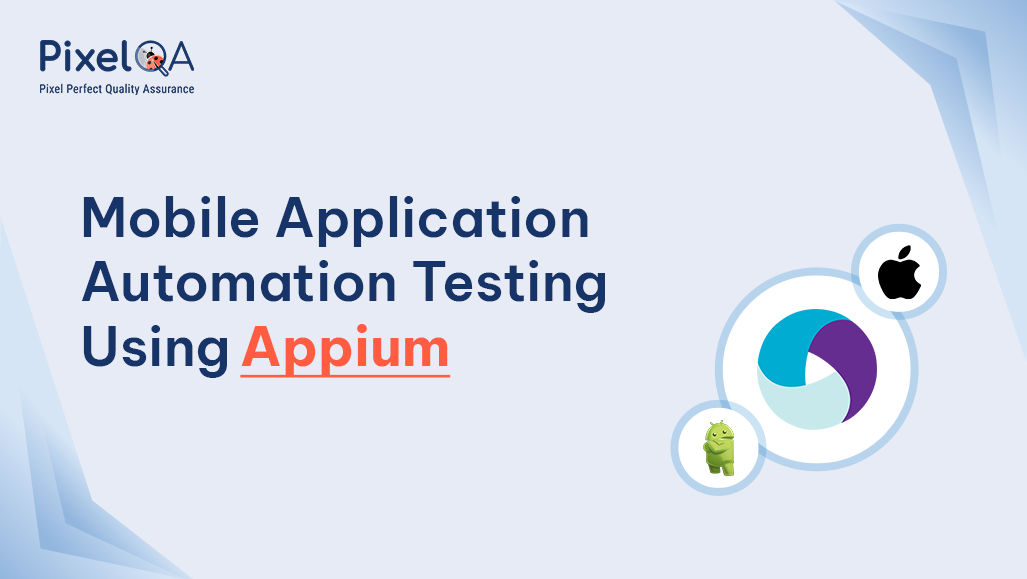
Introduction
Appium functions as an open-source tool designed for mobile automation. It functions as a server linking to your mobile device, enabling the use of Appium Inspector to identify UI elements. These components of Appium testing services can be utilized to develop automated scripts for testing your mobile apps.
Table Of Contents
- Introduction
- What is Appium?
- How to Install Appium
- Running Your First Test with Appium
- Starting Your First Mobile Automation
- Conclusion
- FAQs
What is Appium?
Appium is an open-source test automation tool that enables mobile application testing across platforms like Android, iOS, and Windows. One unique feature about Appium is that it uses a single API to make UI tests for different operating systems, therefore facilitating code portability across platforms. Appium is also cross-platform concerning scripting languages; it allows the user to write tests in different languages and with the help of various tools, such as Java, JavaScript, Python, PHP, and C#. This flexibility creates a suitable environment for carrying out mobile automation testing.
_638581987782853527.png)
How to Install Appium?
There are a few installation options for Appium, depending on your preferred setup.
Employing NPM (Node Package Manager):
- Should Node.js already be present on your operating system, it would not be hard to install Appium through NPM. Type the command npm install -g appium into your terminal or command prompt. This will download and install Appium globally onto your system. Make sure that your version of Node.js is 12 or newer to prevent any compatibility problems.
By utilizing Appium Desktop:
- You can opt for a visual interface and get the Appium Desktop application. Check out the Appium releases page, and grab hold of the latest and greatest that is compatible with either your Windows, macOS or Linux operating system. After downloading it, simply install it like you'd install any other app. Appium Desktop includes a useful Inspector tool that is great for recognizing UI elements.
- Following installation, you must also configure Android Studio for testing on Android devices or Xcode for testing on iOS devices, depending on your chosen platform. After all the preparations are done, you can begin automating your mobile testing using Appium!
Running Your First Test of Appium

- First Start the cmd if you install Appium using NPM. Now to start the Appium server enter "appium -alocalhost -p8827--allow-cors".
- Connect a mobile to your system and Turn on USB Debugging on your Android Mobile Phone.
- Now you need to start Appium Inspector, Provide all desired capabilities here and Click on the Start Session button to start a new session.
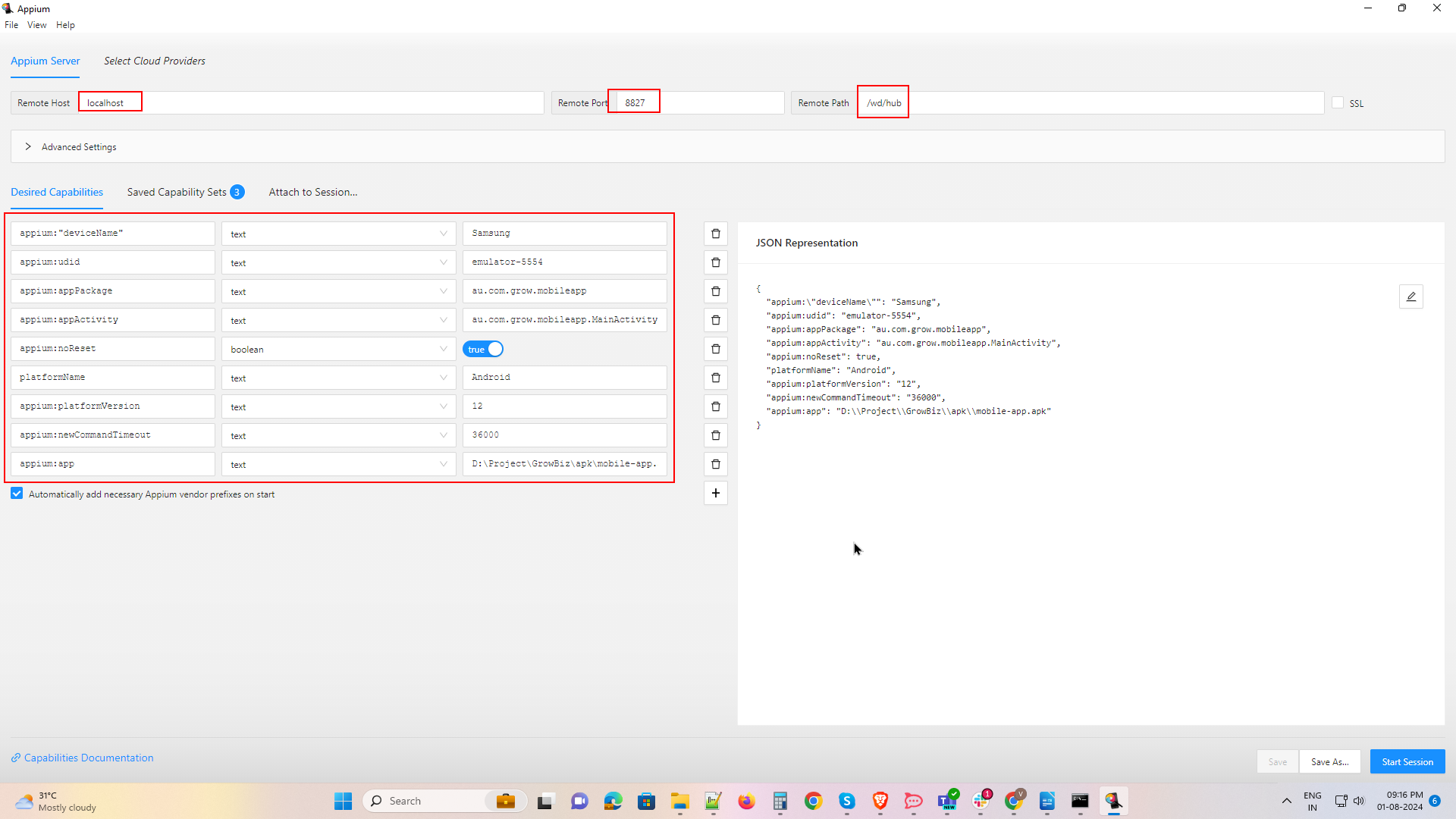
- Now you need to collect the id and the Xpath. like shown in the below image.
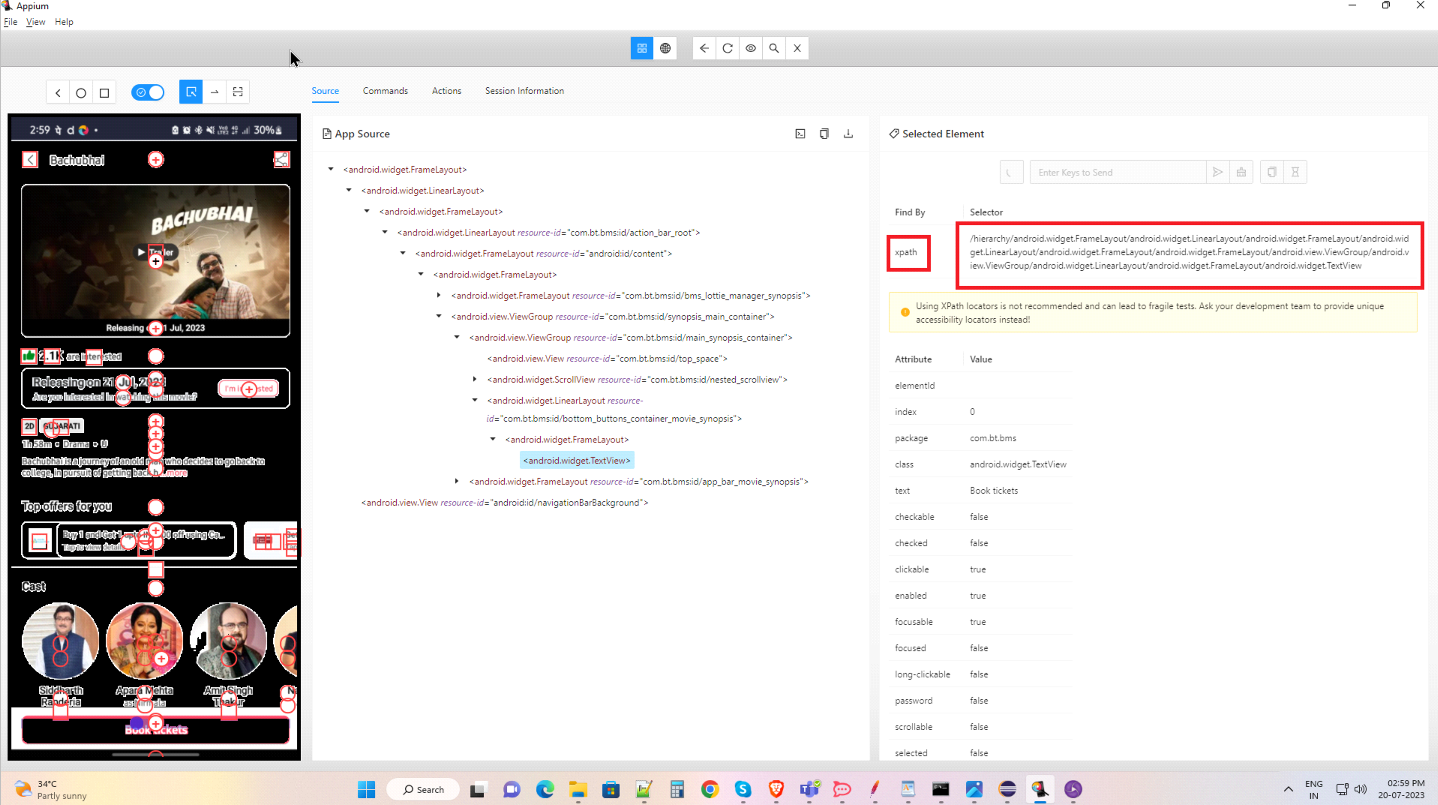
First, download and install Eclipse IDE for Java.
Next, download the Appium JAR file and add it to Eclipse.
Finally, create a new project in Eclipse dedicated to Appium testing.
Starting Your First Mobile Automation
- Start Eclipse and add a new class.
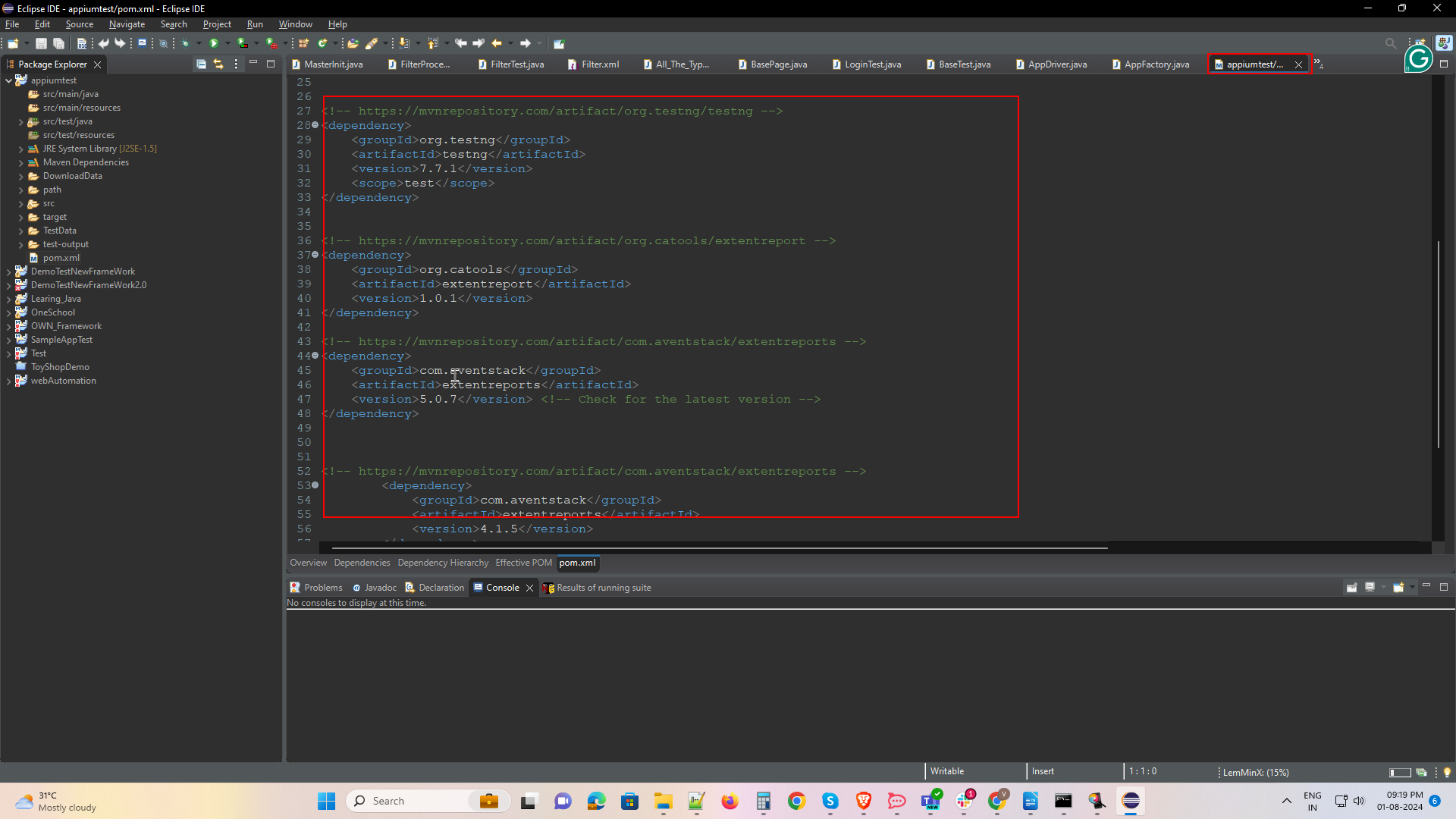
- Give Desired Capabilities.
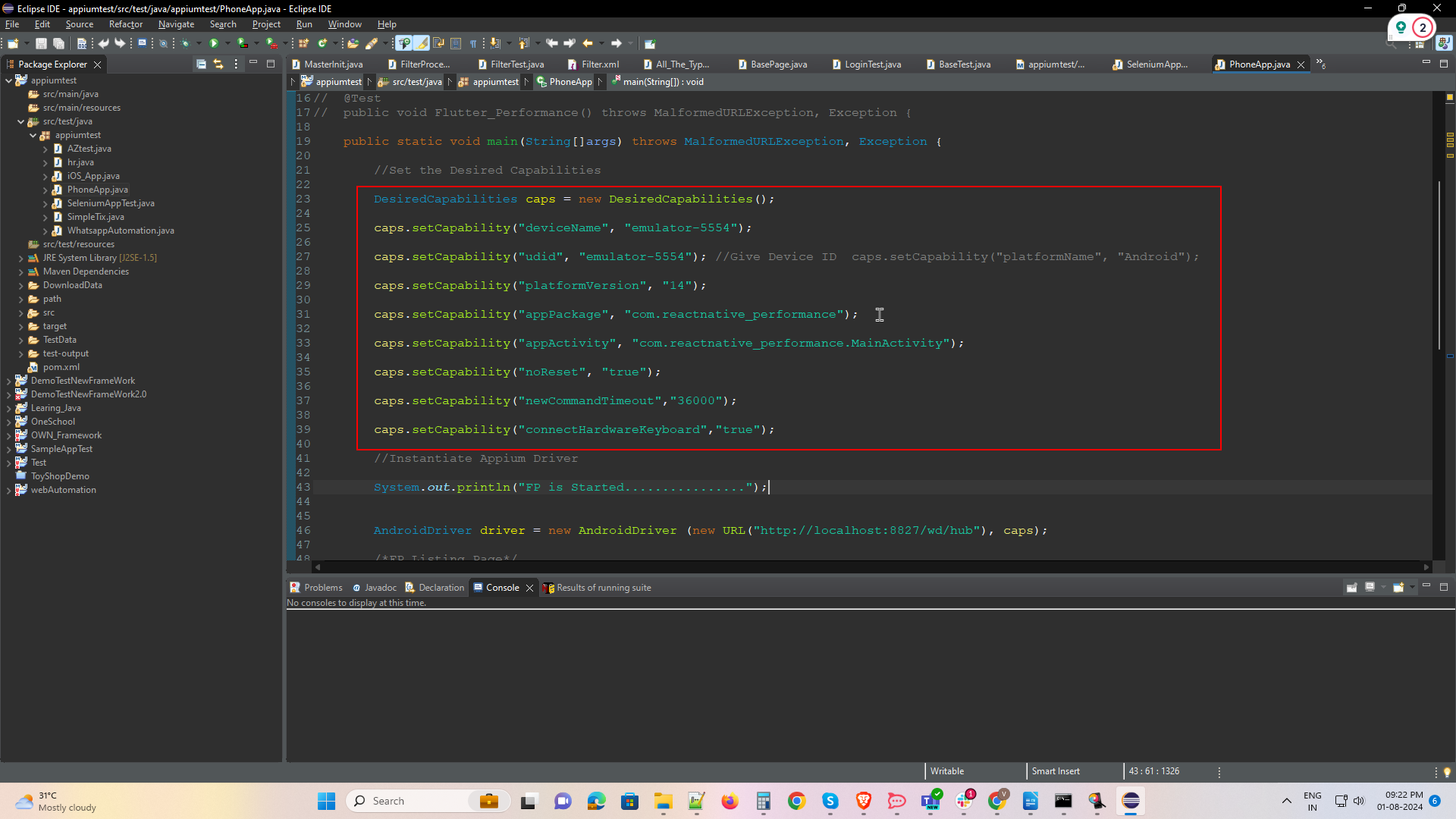
- Set Remote Path.
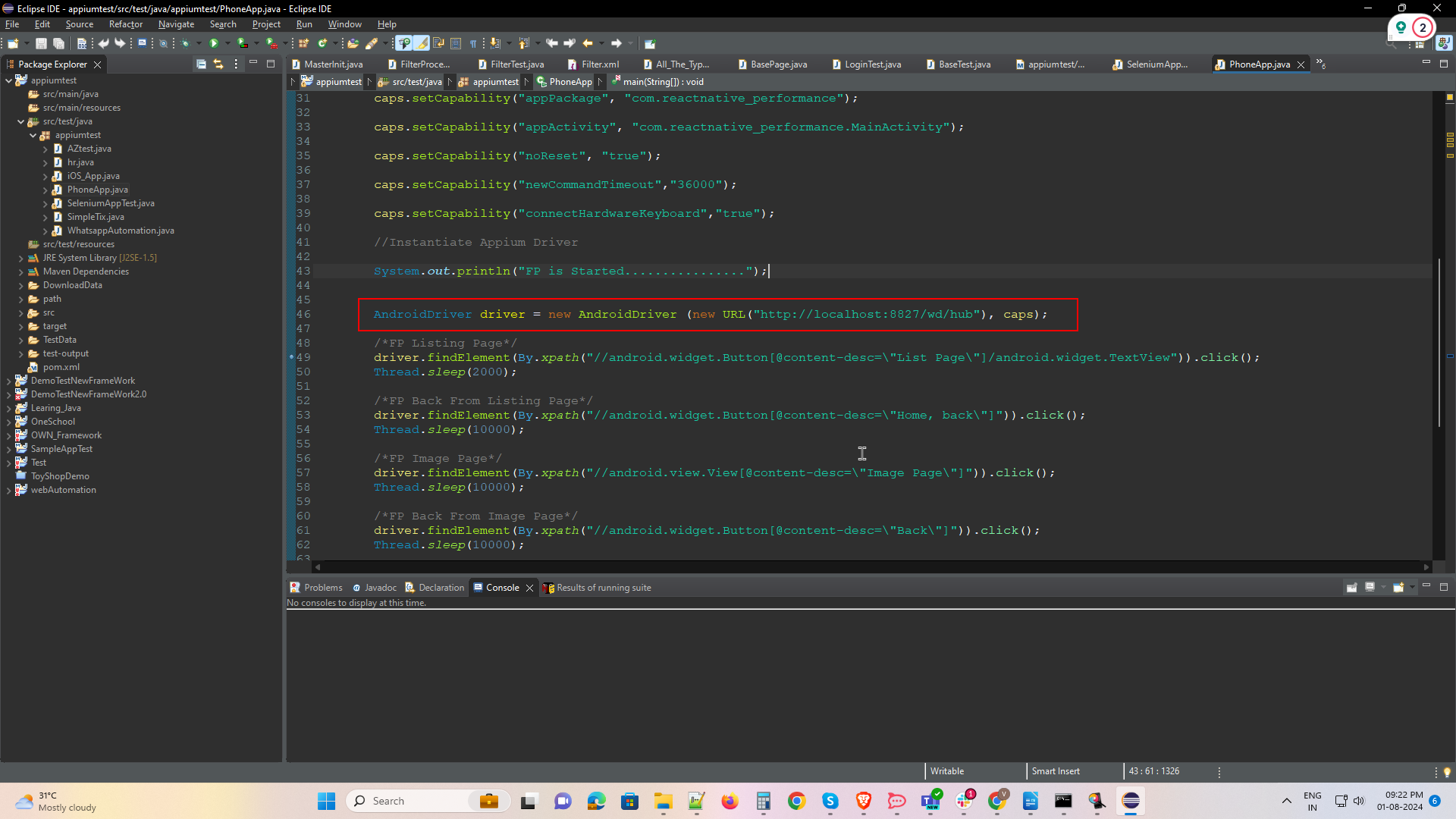
- Now start writing the script the same as in the web automation script.

Conclusion
In this blog post, we have covered the fundamentals of automating mobile application services with Appium, starting from installation to executing your initial test. Appium is a strong open-source tool that provides ease to test Web applications, Native applications, and Hybrid applications on Android as well as on iOS platforms. Following the procedures given, you can begin the work with Appium easily and utilize the Inspector tool for recognizing UI elements and build automated scripts quickly.
Not only is Appium useful for mobile testing, but it also operates across platforms and supports many programming languages. Appium is an aptitude you should develop because whether you are a beginner to mobile automation or are trying to streamline your testing processes, it will enable a lot of time savings and ensure effective running of your applications.
Check the FAQs section or other sources if you want to know or explore things more deeply to increase your knowledge and skills in using Appium.
FAQs
1. What is the exact definition of Appium, and how does it work?
Appium is a free application that provides support in simple steps for automated testing of mobile applications, regardless of the types 'Web', 'Native', and 'Hybrid'. Basically, it acts as a server between your mobile device and your computer. You can choose to use scripts in different programming languages to interact with the user interface elements of the application and perform your tests starting from that moment.
2. Do you need to have coding skills to use Appium?
Learning the fundamentals of programming is essential for the creation and execution of test scripts within Appium. You may opt to write these scripts in mainstream programming languages such as Java, Python, or JavaScript, depending on your project demands.
3. Do we need Appium Inspector for creating test scripts?
Appium Inspector is not a must-have tool, but is certainly very beneficial. It helps to identify UI components in your mobile application and gives the locator information (Xpath, IDs, etc.) to write perfect automation scripts. It significantly enhances the entire process, especially for beginners.
4. Is it possible to utilize Appium for testing on both Android and iOS platforms?
Absolutely! Appium makes it easier to test apps on several platforms because you have to write code for testing once while executing on both Android and iOS devices, making it that much more convenient for developing apps cross-platform.
5. Is it possible to execute Appium tests on actual devices?
Yes, it is possible! Appium allows testing on real devices and emulators/simulators. USB debugging should be enabled while testing on Android devices. For iOS, ensure that you have tethered your device and set it up for development work. Testing on real devices gives an accurate picture of your application in a real-life scenario, which is why partnering with a software testing company can enhance the reliability of your testing approach.
About Author
Vedant Parmar is a veteran QA executive who believes in continuous learning, training, and acquiring new skills. He wants to pursue a career in mobile test automation and penetration testing and strives to be a QA manager on this professional journey.
